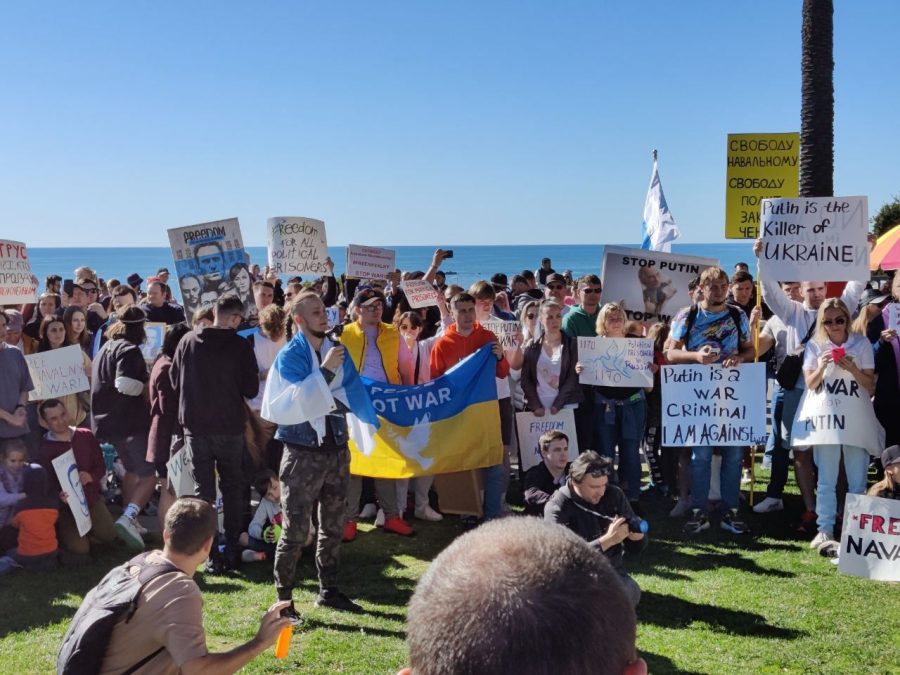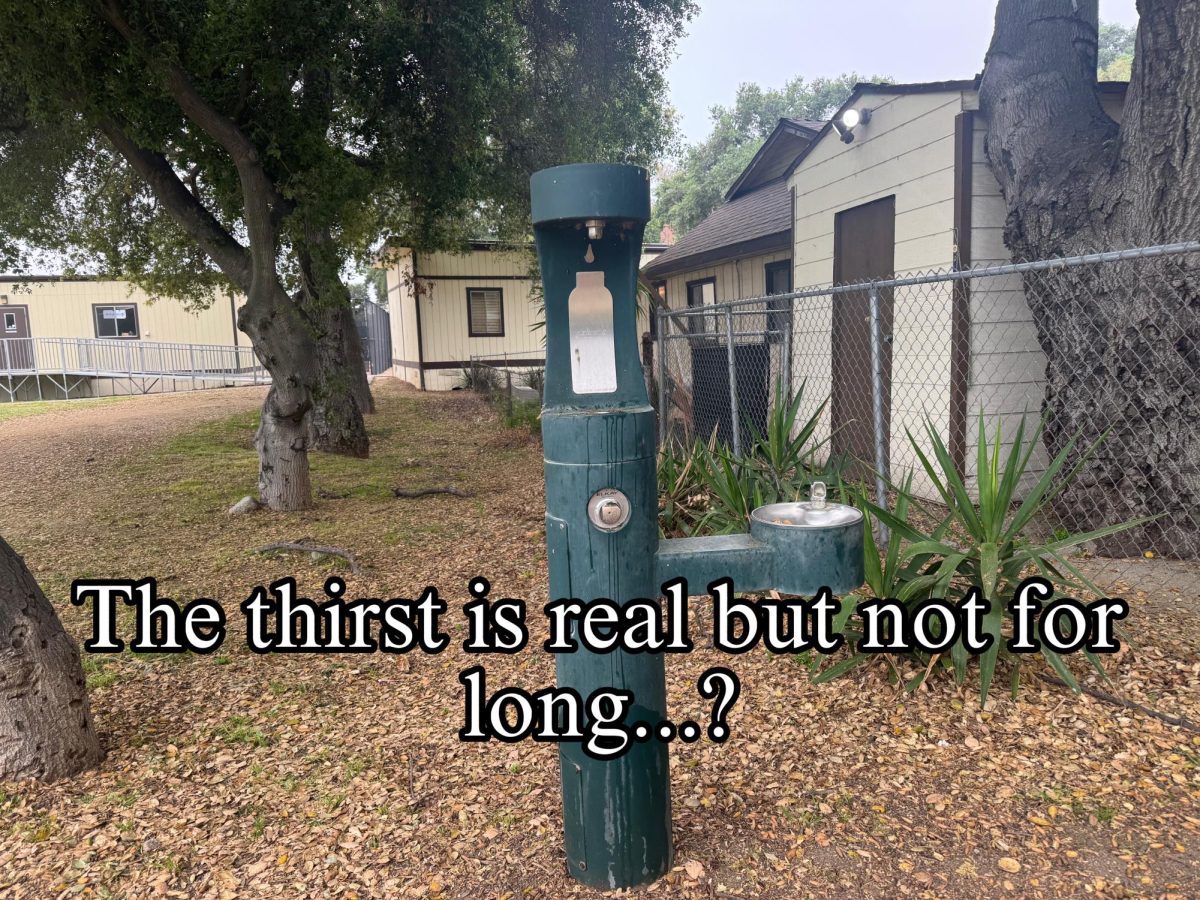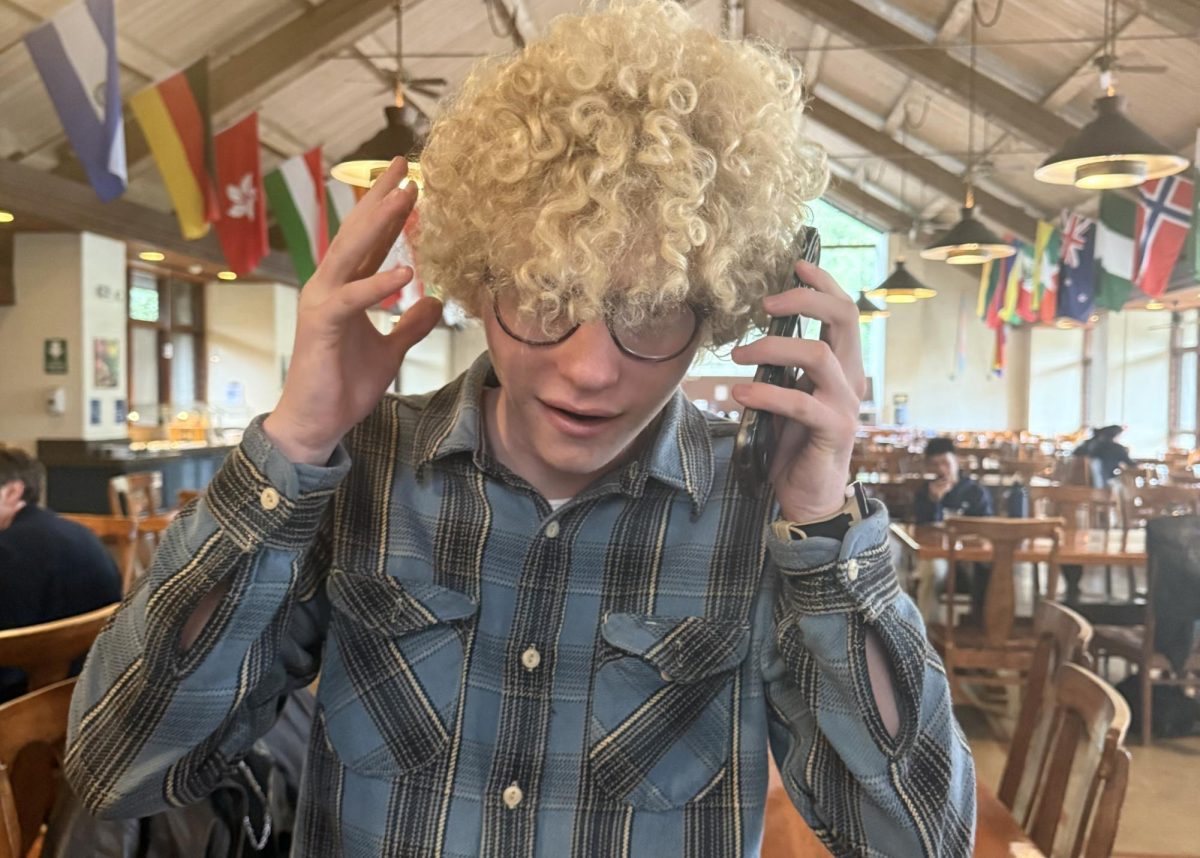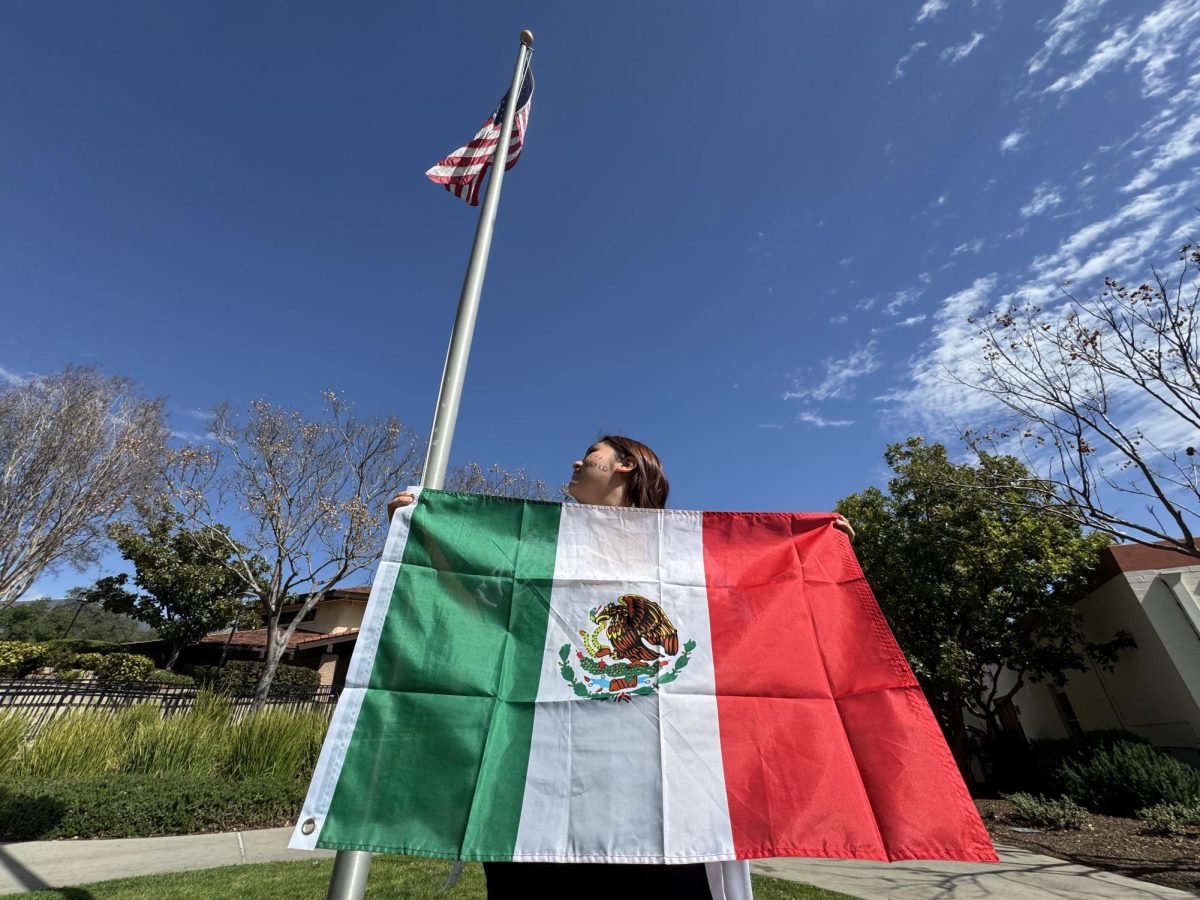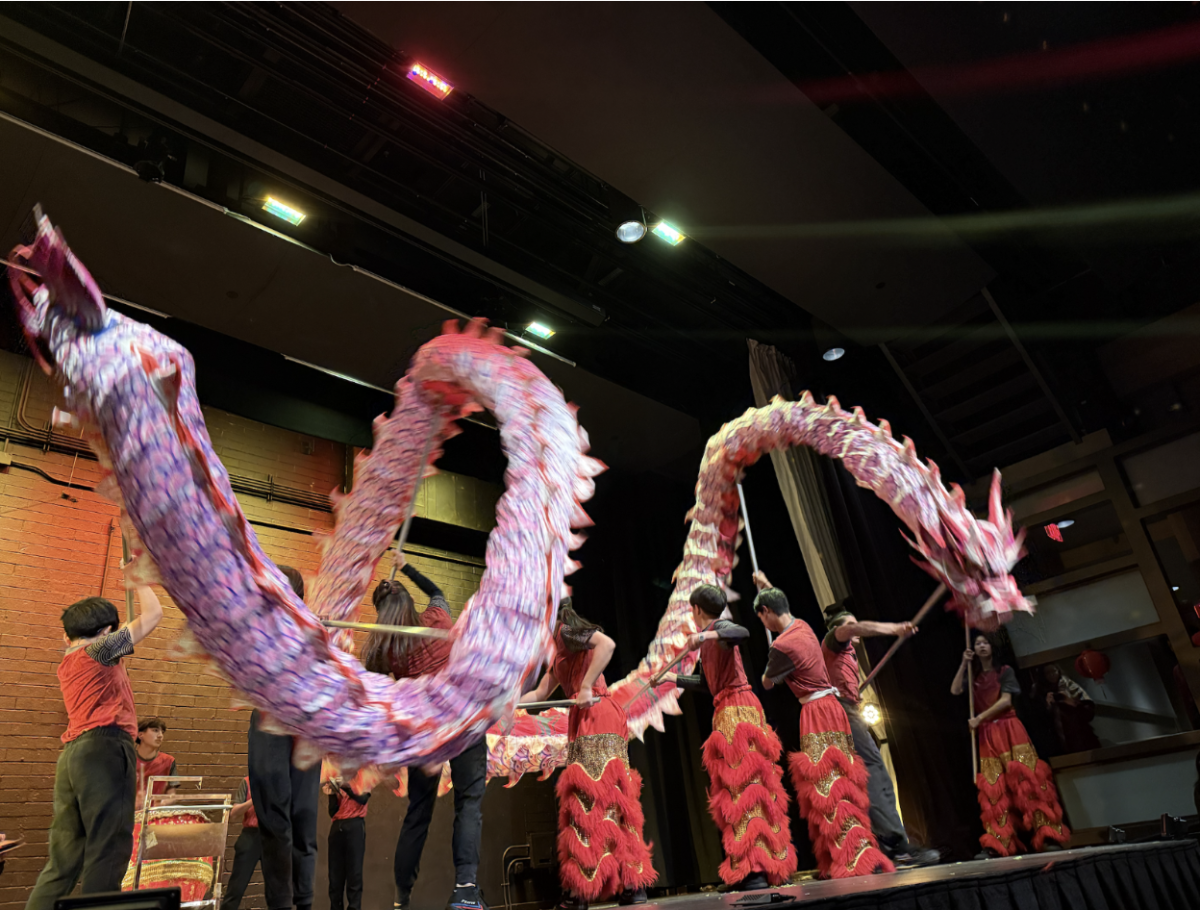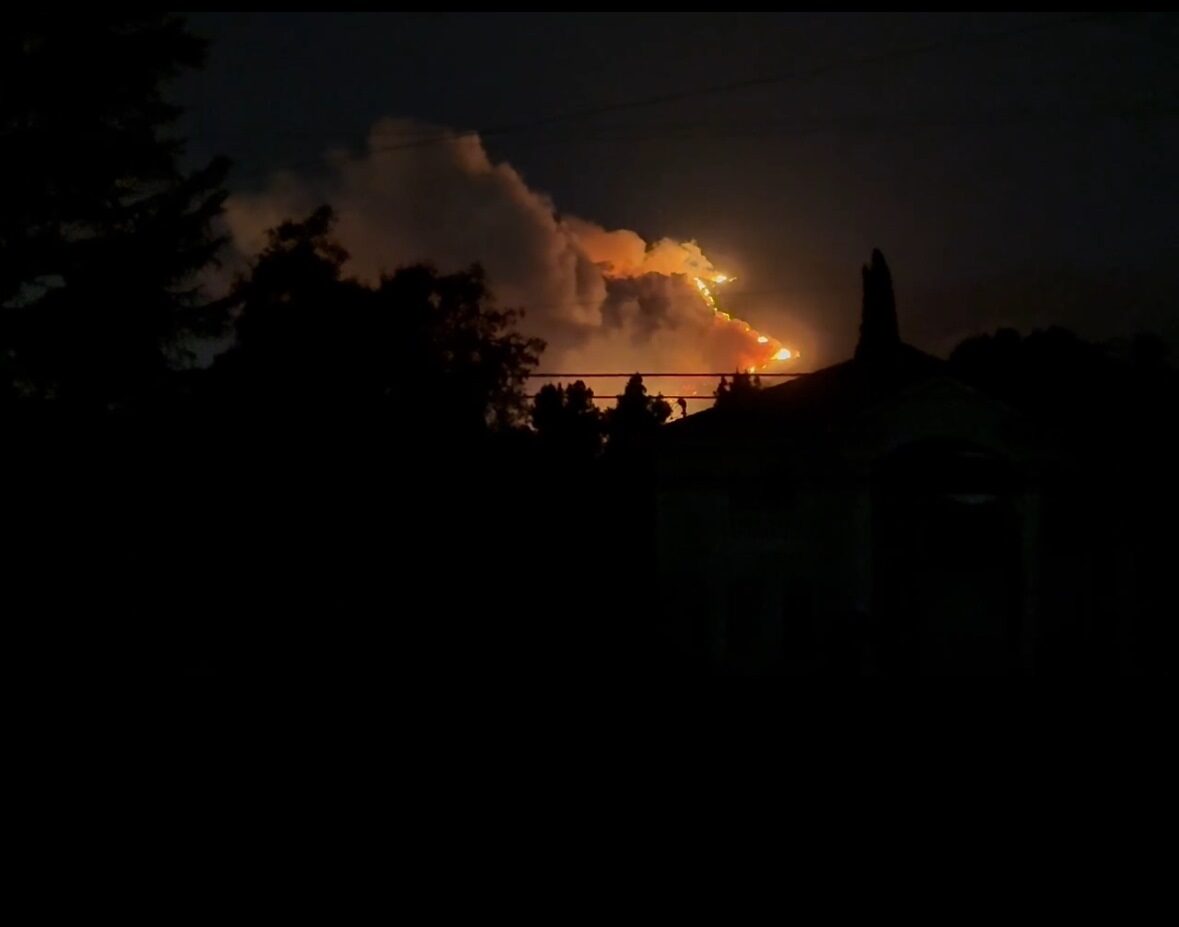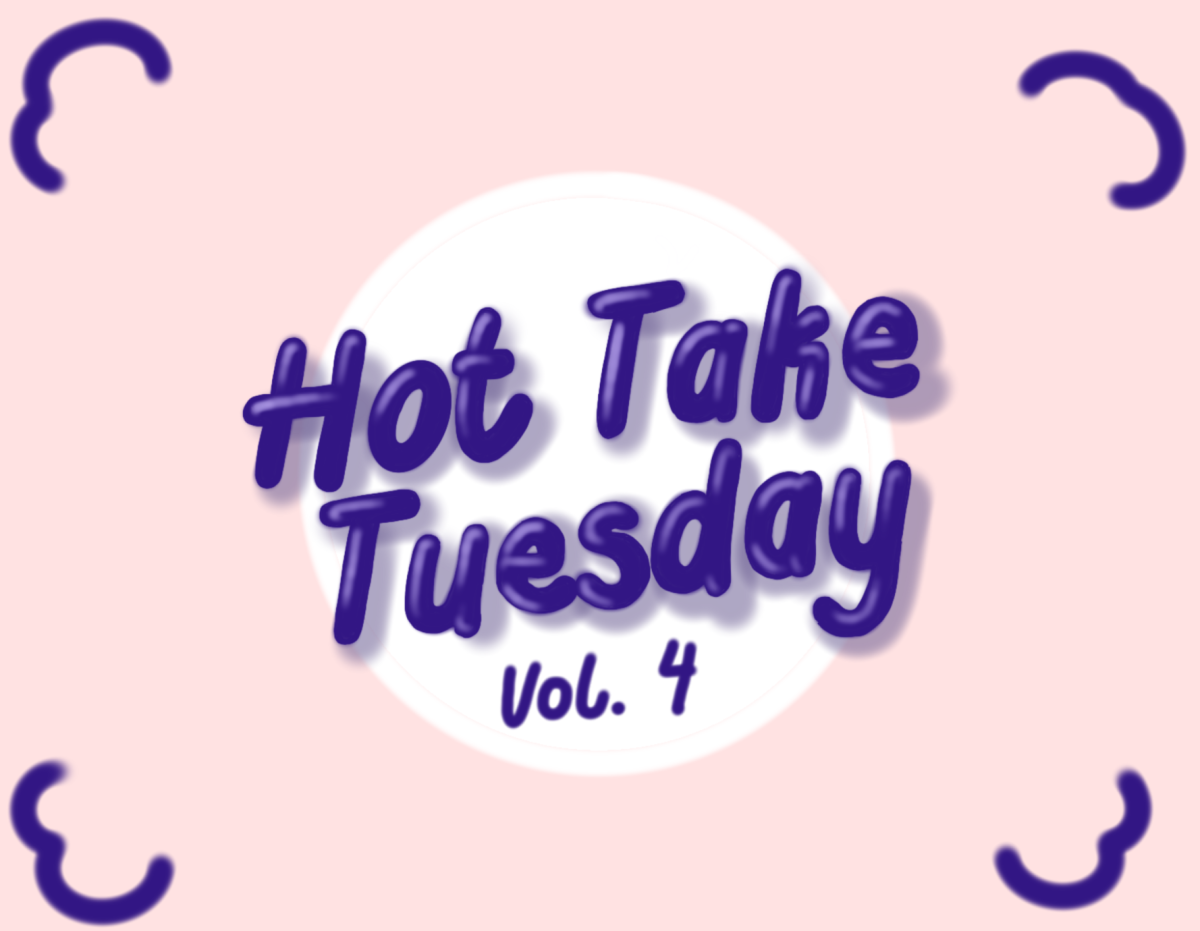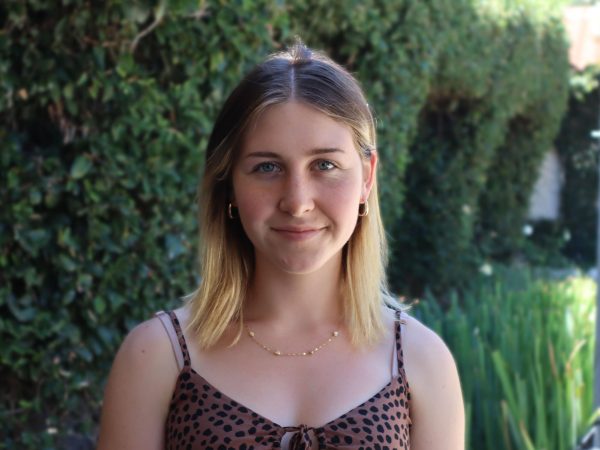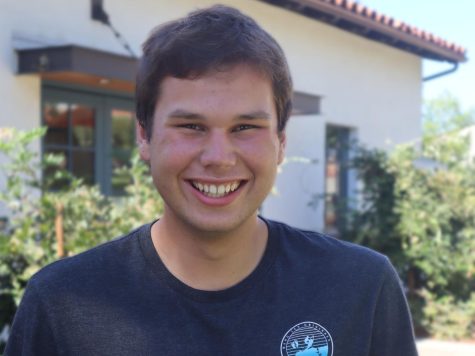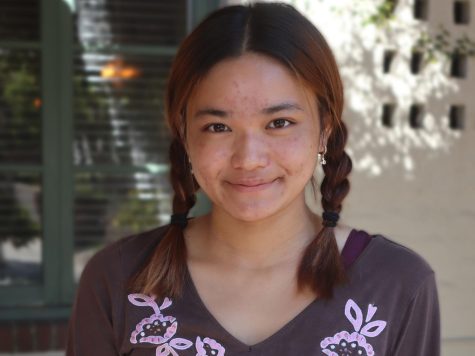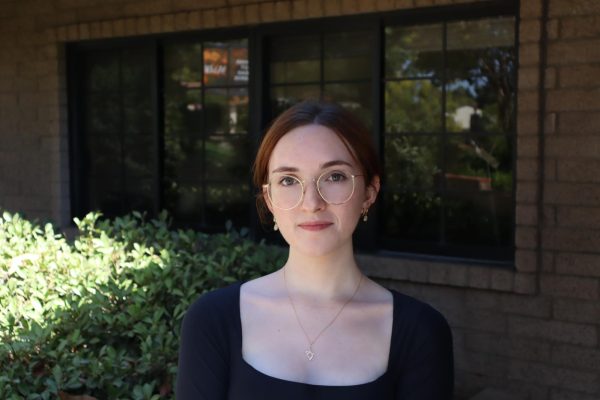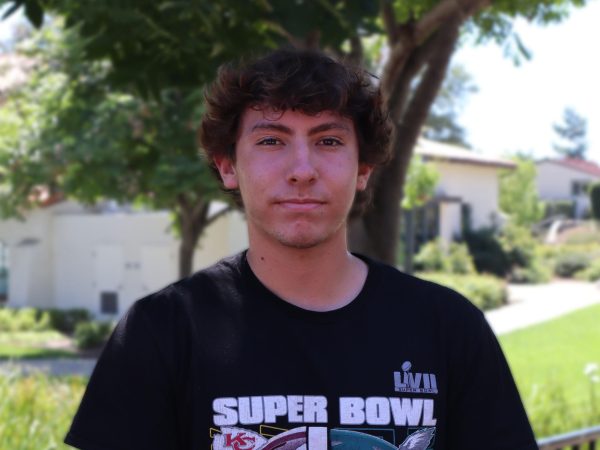Exactly a year ago, a traumatic and unprompted event took place halfway across the globe. The Webb community was not the only one affected by the aftermath, and we — along with millions of people around the world — felt many of its ramifications firsthand.
On February 24th, 2022, President Vladimir Putin launched a full-scale invasion on several territories in Ukraine, the most recent — and most violent — phase in Russia’s war against Ukraine.
“I found out from my dad,” said Mariia Lykhtar (‘22), remembering the announcement of the invasion. “I remember studying in the library at night and receiving a phone call from him. His first words were: ‘Mariia, listen carefully, run to the closest bank and take all the money off your card. When I asked him what had happened, he said: ‘War started.’ And I noticed the faint sound of explosions in the background. I began crying and my hands started shaking – I think it was my first panic attack… I sprinted up to Jones to beg Dr. Greco to drive me to the bank.”
Rather than declaring the full-scale war that has unfolded, Putin has called the invasion a “special military operation.” He hoped his military would be able to sweep into Kyiv, the capital city of Ukraine, and occupy all territories in the country in a few days in an attempt to “demilitarize and de-nazify” Ukraine — claiming that the nation and its president were perpetuators of Nazism. After a year of unsuccessful fighting and chronic war crimes against Ukrainian civilians, Putin was not able to achieve his goal, leaving the war to fall into a never– ending back-and-forth of Russian oppression and Ukrainian retaliation.
For people that have not been keeping up with the events of the war, it is important to understand the significance of this global event and the consequences it will have virtually everywhere.
Ukraine has bore the brunt of Russian besiegement since 2014 with the annexation of Crimea, a region in southeastern Ukraine — it was the first time since WWII that a European state annexed the territory of another. It was not an unprecedented act from Russia itself, considering the Russian interference in the Syrian civil war in 2015 at the Syrian government’s request for aid, where Putin’s regime committed war crimes against the Syrian people.
Russia’s history of aggression has left people from all backgrounds scared, confused, and unsure of what it means for the future. Considering the entirety of this past year, there are some particularly significant events that have left an impact on everyone in the Webb community and in the world at large.
For example, for Russian and Ukrainian students at Webb, both with family in either country or not, the night of February 24 last year was one we will not soon forget. For some of us, watching the news for weeks straight and trying to stay in contact with our families across the globe took a lasting toll on our mental health.
Apart from the immediate trauma that many of us were subjected to in late February and early March, there was also the challenge of having to carry on with our usual commitments and answer questions from students and teachers alike without warning, all while having the stress of knowing the war was still happening and there was not much we could do to help.
However, we inevitably still found ways to raise awareness about the war and contribute to fundraisers and organizations that were financially and emotionally supporting Ukrainian people.
“When the war first began, I spread awareness a lot on social media; reposting donation links, information about the war for foreigners, and surveys that people could sign to support Ukraine,” Mariia said. “Later, I translated official documents and edited videos requesting donations for my dad’s squad.”
Many of the Webb faculty reacted differently to the news of the invasion than Russian and Ukrainian students, acknowledging how difficult it is to prepare for the consequences such an event.
“I was really surprised by the invasion— the sources I had read had led me to believe that Putin was bluffing,” said Ms. Fisher, History & Humanities Department Chair. “I was obviously horrified, because it goes against international laws to engage in offensive warfare and try to conquer another territory.”
“I think a lot of teachers brought up [the invasion],” Ms. Fisher continued. “My approach personally as an educator is when events happen in the news that are complicated and upsetting, I do a metacognitive exercise where I let students share what they know and what they want to know, and then we make a list of questions [together]… I won’t know the answers to some right away, but it‘s always interesting to see what questions come up.”
There were many Russians long in opposition to the rising authoritarianism who had left the country soon after the invasion, as well as others who left following the announcement of mobilization in Russia to avoid being involuntarily drafted.
“Soon after the invasion, there was a very noticeable flood of emigrants from Russia who could no longer live in a country that causes so much pain and horror to innocent people of sovereign Ukraine,” said Elena Petrova (‘25), a former long-time resident of Moscow. “For others, mobilization was the last straw, because people didn’t want to be cannon fodder for the Russian army. Some of my friends who stayed in Russia after the invasion had no other choice but to leave to some nearby country when Putin started drafting everyone.”
In response to the challenges that the people of both Russia and Ukraine were facing, many Webb students and their families have also supported civilians impacted by the war through direct and indirect financial assistance.
“My mom started joining a lot of organizations… she helped a Ukrainian couple get across the border from Mexico into the U.S., and she was so happy,” said Finn Bulson (‘25), who has several family members in both the U.S and Russia. “Also, a lot of my piano teachers [came from the war zone], and we’d been helping them financially.”
Other students described their own ways of approaching the situation.
“Every year, I put 1000 dollars or 200 hours into a charity,” said Ray Kan (‘24). “Usually, it’s an organization like Isaiah’s Rock, but when the war started, I made the decision to contribute to the effort.”
In March of 2022, Ray agreed to donate 100 dollars for every point Stratton Rebish (‘24) scored against him in a game, to a charity of Stratton’s choice. With Statton’s advice, Ray made a donation to Voices of Children, a charitable foundation founded by Olena Rozvadovska and Azad Safarov in 2019 dedicated to helping Ukrainian children during the war. Ray donated 800 of his 1000 dollars to the charity, and with the donation he received complimentary stickers reading “I stand with Ukraine”. He distributed these to dozens of Webb students, who stuck them on everything from water bottles to laptops.
Despite the undeniable efforts from the wider Webb community to support students and people affected by the war, there was a noticeable shift in attitude after just several weeks after the initial invasion. A natural occurrence with any large and traumatic news event, anyone not directly impacted tends to forget about the ongoing events, whether from trauma desensitization or from the distraction of newer and seemingly more pressing issues.
“Webb dealt with it in a concerned but detached way, as expected from an institution that had no personal stake in the matter,” Mariia said. “Hence I barely remember what they did other than sending out a few emails and conducting discussions.”
Indeed, the majority of what Webb’s Russian and Ukrainian students remember from this past year is centered around the engagement we had with our own families and with the community outside of Webb as we continued to follow the progression of events, raised money, attend protests, and do whatever else we could with our restricted freedoms.
“A few weeks ago, I participated in a Russian emigrants-led anti-Putin protest in Santa Monica,” Elena said. “There were many people delivering anti-war speeches, and the question that most addressed was ‘What are the ways we can collectively help Ukraine?’. As for myself, I’ve been trying to do as much as I can to support Ukraine since the first day of invasion. I have donated to funds for Ukranian refugees and for Ukranian army, as well as the ACF, Navalny’s (a prisoned Russian opposition leader’s) foundation. In Russia, donating to organizations of this kind is now regarded as a terrible crime, so honestly, I have many concerns about safety of my close relatives in Russia.”
Lyudmila Gaudrault, a San Dimas resident who is originally from Ukraine and whose son has attended college in the U.S., recalls her experiences from the past year.
“The entire past year, 2022, was in itself a huge global event,” Lyudmila said. “Fortitude, courage, steadfastness, the unity of all the people of Ukraine, the president [Zelenskyy] and his office, the Ukrainian army. The first speech of Volodymyr Zelenskyy before the U.S. Senate… how peaceful, unarmed ordinary Ukrainian people became a living wall in front of the driving Russian tanks and armored personnel carriers.”
As we approach the one-year mark since the invasion, it is important to remember how the actions of the Russian state serve as a reminder of the danger of authoritarian regimes and their militaries when they are unregulated by the world for too long. The stress and trauma that Webb students and their families have suffered for the majority of 2022 and now 2023 is irreversible, and we must continue to advocate for Ukraine and its people if we want to ensure peace in our community and beyond.


